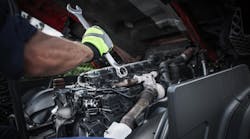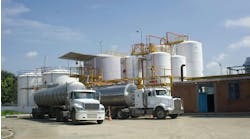According to the 2022 ATMC Training Benchmark Survey, the average age of technicians is trending lower. I suppose that's not a huge surprise as lots of baby boomers are now retiring.
While it's good news that we are getting younger people to come into our industry, it also presents some challenges. Often when people leave, they take with them what is called tribal knowledge. In trucking that knowledge consists of things learned on the job that can shorten diagnostic or repair time. It also is information on customers and the idiosyncrasies of how they like a certain repair done.
See also: Mike Rowe on diesel technician shortage: 'The math ain’t good'
The retirement of your more seasoned technician workforce can leave gaps in your shop’s skillsets or lead to reduced proficiency in performing certain repairs.
Now is a good time to assess the age curve in your technician workforce. Are you going to see a mass exodus of older techs or a steady stream of them leaving over the next five years?
I think for most of us, the answer is yes. There are a few things we can do to position ourselves for the future.
If you don't already have your younger techs partnered with a mentor, now is a good time to do that. The more seasoned techs can teach the less skilled ones some tricks of the trade while the newer techs can help the seasoned vets get more comfortable with technology.
Gaining mastery over the new technology tools needed to diagnose and repair today’s highly sophisticated trucks might even help you retain techs that were considering retiring. Often these technology tools take away some of the more physically demanding parts of the job, and that could be very appealing to techs nearing retirement from whom the physical part of the job has become too taxing.
The other thing you need to do is look at the way you handle training. Assess the skill levels of all your techs and try to predict where you need to shore things up because you will be losing a long-tenured tech who was a master at engine or transmission repair, for example.
See also: Two acronyms to help with repairs
As part of the survey, respondents were asked to comment on areas where the need for training was the greatest. Electronics was the No. 1 area cited by survey respondents, followed by advanced engine performance. The need might be different in your shop, so rely on your own assessment to determine what types of training you need to provide for your technicians.
The technicians responding to the survey said they prefer instructors, classrooms, and hands-on training, but many of them are only being offered virtual training. I think there is a place for virtual training, but I also believe that sometimes technicians need to have that hands-on training to gain mastery over a repair.
Training is expensive, but not doing the training is even more expensive as unskilled techs will not be able to fix things right the first time. When it comes to training, there is no one-size-fits-all approach. You need to assess the skill set of each technician and put together an individual development plan that fills in their knowledge gaps and gives you a technician workforce with the right skills to handle the types of repairs you see in your shops.
Having well-trained technicians of all ages is imperative to keeping the wheels turning.
Gino Fontana, CTP, is COO and EVP at Transervice Logistics Inc. Prior to this recent promotion, he was VP of operations at Berkeley Division and Puerto Rico. He has more than 35 years of experience in the transportation and logistics industry with both operational and sales experience.



